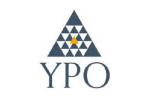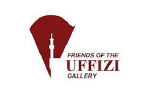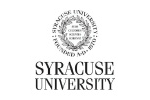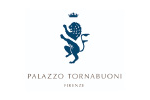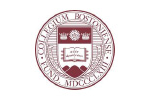












BUNDLE ONLINE ART HISTORY COURSE
“The Golden Age of Florence (1300-1500)”
LIVE ART HISTORY COURSE with Dr. Rocky Ruggiero
Dates & Times:
Mondays & Wednesdays
Part 1: May 12, 14, 19, 21, 28 and June 2, 2025
Part 2: September 8, 10, 15, 17, 22 & 24, 2025
11:30am – 12:45pm ET | 8:30 – 9:45am PT |
4:30 – 5:45pm London
ONLINE ART HISTORY COURSE
“The Golden Age of Florence (1300-1500)”
Course Description:
Florence, Italy, was the cradle of the Renaissance and the birthplace of the modern world. From Dante to Leonardo Da Vinci and Michelangelo, this central Italian town produced the greatest concentration of artistic genius in history. The legacy of this creative explosion is still very much present in the city. Whether it is Brunelleschi’s crowning dome above the titanic cathedral, Ghiberti’s stunning golden doors known as The Gates of Paradise, Botticelli’s beautiful painting of the Birth of Venus or Michelangelo’s unrivaled statue of David, beauty and inspiration are found in every corner of this open-air museum that is Florence. This online course will tell the story of Florence through its art, architecture and history – a story that is simply magnificent!
Course Objectives:
Virtual Classroom: Full access to an online educational platform with videos of recordings, syllabus, and readings.
Credits: Certificate of Completion
Location: LIVE INTERACTIVE ON-LINE ART HISTORY LECTURES
Optional Readings:
Information will be provided 2 weeks before the start of the course.
Complete syllabus will be provided upon registration.
Lecture 1 – The Rise of the City State: Palazzo and Piazza della Signoria
Monday, May 12
The Palazzo and Piazza della Signoria were the great political nerve centers of the medieval Republic of Florence. The architecture of the palace and the sculptures within the piazza each reflect the political history of Florence. We will examine the major aspects of the architecture and history within the great urban space and look at its extraordinary array of sculptures. Each of the statues in the Piazza della Signoria has a story behind it. From the glory days of the Republic to the more decadent days of Medici monarchy, these statues literally tell the tale of Florence’s great history.
Lecture 2 – The Florence Cathedral Complex
Wednesday, May 14
The Baptistery is one of the oldest monuments in Florence and we will enjoy its breathtaking mosaic decorations and unique architecture. We shall then continue to the Cathedral of Florence, named Santa Maria del Fiore, which is the religious center of the great medieval city and for two centuries was the largest church in Christendom. We will explore the vast architecture of the Cathedral and analyze the engineering marvels that not only made this structure possible, but also Brunelleschi’s great crowning dome.
Lecture 3 – The Cathedral Museum
Monday, May 19
Despite its name, the Museo dell’Opera del Duomo is not a music museum, but rather a museum of the extraordinary artwork that was commissioned by the Opera, or “building committee,” of Florence Cathedral. All the artwork contained in this museum was intended for or removed from the breathtaking cathedral across the street. It is home to the amazing original bronze doors of Florence Baptistry, including Ghiberti’s “Gates of Paradise,” many of Donatello’s sculptural masterpieces, including his “Penitent Magdalene,” Michelangelo’s 2nd “Pietà,” and the beautiful “Cantorie” by Luca della Robbia and Donatello.
Lecture 4 – The Rise of the Mendicant Orders (1): The Basilica of Santa Maria Novella
Wednesday, May 21
This lecture will examine the great Dominican church and convent of Santa Maria Novella. From its 13th-century Gothic-style architecture of its interior to its early Renaissance façade, the great basilica reflects the changing artistic, religious, and social trends of the late medieval world.
Lecture 5 – The Rise of the Mendicant Orders (2): The Basilica of Santa Croce
Wednesday, May 28
The Basilica of Santa Croce is the largest Franciscan church in the world. Its size and magnificence are the result of a perfect historical storm. The combined forces of St. Francis of Assisi’s popularity and Florence’s great wealth resulted in an extraordinary amount of artistic patronage for the church. This lecture will examine the art, architecture and patronage of what might just be the greatest decorative complex in all of Florence.
Lecture 6 – The Rise of the Guilds: Early Renaissance Sculpture at Orsanmichele
Monday, June 2
The medieval-grain-market-turned-church of Orsanmichele in Florence, Italy, was the commercial heart of the Renaissance city. Begun in 1337, the ground floor was originally a loggia-style market, before being closed in when the building was transformed into a church. The major guilds of Florence were assigned the task of decorating the inside of the new church with paintings of their respective patron saints and the outside of the building with statues. Produced by some of the greatest artists of the Renaissance, such as Donatello, Ghiberti, and Verrocchio, each statue reflects the changing artistic styles of the day as well as the socio-economic importance of their guild patrons.
Lecture 7 – Donatello and Early Renaissance Sculpture at the Bargello
Monday, September 8
The Bargello Museum houses what is arguably the world’s greatest collection of Renaissance sculptures. Renaissance art expert Dr. Rocky Ruggiero delves into the history of the 13th-century building that houses the collection as well as the sculptural masterpieces that it contains. Among them are the so-called “Competition Panels” by Lorenzo Ghiberti and Filippo Brunelleschi depicting the sacrifice of Isaac, Donatello’s marble and bronze statues of “David” and “St. George,” Verrocchio’s “David,” and Michelangelo’s first commissioned sculpture, the “Bacchus.”
Lecture 8 – Brunelleschi, the Medici and Early Renaissance Architecture
Wednesday, September 10
This lecture will examine the important role of the Medici family in the history of Florence. The Medici imposed de facto rule on the city from 1434 until their exile in 1494 and controlled the city’s political, economic and artistic policy. Their power and patronage are best expressed in their unofficial “official” church of San Lorenzo, which was designed by the visionary Filippo Brunelleschi and is celebrated as the first-ever Renaissance style church. The Medici also commissioned the construction of the first-ever Renaissance style family palace which became the model for domestic Renaissance architecture for centuries after.
Lecture 9 – Early Renaissance Painting in Perspective: Masaccio’s Brancacci Chapel and the “Holy Trinity”
Monday, September 15
This lecture will examine the frescoes in the Brancacci chapel in the church of Santa Maria del Carmine that clearly demonstrate the evolution from Gothic to Renaissance style painting. Here the painters Masaccio, Masolino and Filippino Lippi worked side by side to create one of the defining decorative spaces of the Renaissance. We will then move on to the church of Santa Maria Novella to view one of the most important paintings of all time – Masaccio’s Holy Trinity. This is the first painting to ever make use of the tool known as linear perspective and demonstrated the Renaissance had indeed surpassed the limits of Classical painting.
Lecture 10 – Masterpieces of the Uffizi Galleries (Part 1) – Medieval Painting
Wednesday, September 17
The Uffizi Galleries house the world’s most important collection of medieval and Renaissance Italian paintings, with major works by artists such as Giotto, Simone Martini, Piero della Francesca, Fra Lippo Lippi, Botticelli, Leonardo da Vinci, Michelangelo, Raphael, and Caravaggio. This lecture will examine the evolution of painting from the early-14th to the mid-15th century, as reflected in the late-medieval and early Renaissance paintings housed in this great museum.
Lecture 11 – Masterpieces of the Uffizi Galleries (Part II) – Renaissance Painting
Monday, September 22
This lecture will focus specifically on the evolution of painting from the late 15th to the middle of the 16th centuries as reflected in the early and high Renaissance paintings housed in this great museum. We shall also analyze several examples of Mannerist paintings.
Lecture 12 – Michelangelo and “The David”
Wednesday, September 24
Michelangelo’s statue of the David has been described as the greatest expression of sculpture of all time. Standing 17’1’’ tall and weighing just over 5 tons, the sheer scale of the statue is breathtaking. Yet, there is much more to this sculpture than just its size. His near anatomical perfection, his civic value as a symbol of the great Florentine Republic, as well as the dramatic narrative tension that Michelangelo imbues in the statue all contribute to its extraordinary quality. This lecture will explore the history, iconography and importance of the sculpture that probably best defines the Renaissance and the great artist who produced it.






